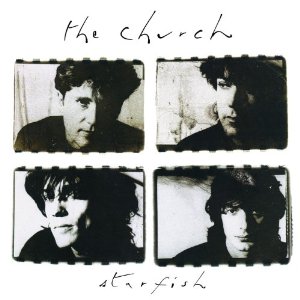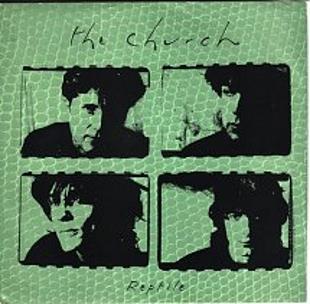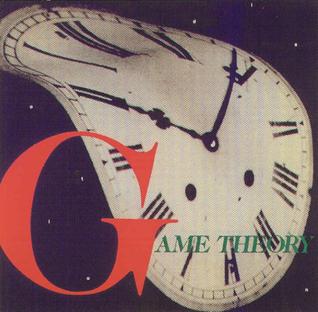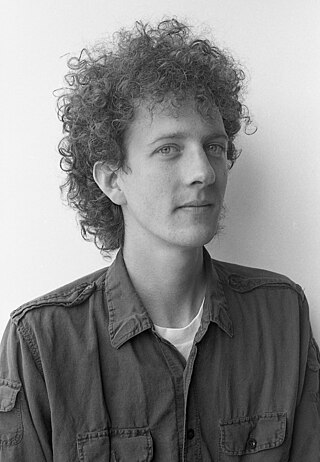
Steven John Kilbey is an English-Australian singer-songwriter and bass guitarist for the rock band The Church. He is also a music producer, poet, and painter. As of 2020, Kilbey has released 14 solo albums and has collaborated on recordings with musical artists such as Martin Kennedy, Stephen Cummings and Ricky Maymi as a vocalist, musician, writer and/or producer. Ian McFarlane writes that "Kilbey's solo recordings [are] challenging and evocative. They ran the gamut of sounds and emotions from electronic and avant-garde to acoustic and symphonic, joyous and dreamy to saturnine and sardonic".

The Church are an Australian rock band formed in Sydney in 1980. Initially associated with new wave, neo-psychedelia, and indie rock, their music later came to feature slower tempos and surreal soundscapes reminiscent of alternative rock, dream pop, and post-rock. Glenn A. Baker has written that "From the release of the 'She Never Said' single in November 1980, this unique Sydney-originated entity has purveyed a distinctive, ethereal, psychedelic-tinged sound which has alternatively found favour and disfavour in Australia." The Los Angeles Times has described the band's music as "dense, shimmering, exquisite guitar pop".

Marty Willson-Piper is an English guitarist and singer-songwriter best known as a former long-time member of the Australian psychedelic rock band The Church. He joined in 1980 after seeing an early gig where they were performing as a three-piece. He was an integral member of the band for 33 years. He was also the guitarist for the English alternative rock band All About Eve from 1991 to 1993 and again from 1999 to 2002. He has also worked with Swedish progressive rock band Anekdoten.

Peter Koppes is an Australian guitarist, best known as a founding and almost-continuous member of the independent rock band The Church. He is a multi-instrumentalist, also playing mandolin, drums, piano, and harmonica. He has also released various solo albums and various recordings with his group The Well (1989-1995). Koppes lives on the Australian Central Coast in NSW but sometimes spends time on the Sunshine Coast in Queensland where he sometimes produces albums and has previously conducted seasonal 'song writing' and 'performance for demo recording' short courses at Nambour TAFE, as well as offering private tuition in guitar, bass, drums and song writing. His daughters are Tatiana 'O' Koppes and Neige Koppes who had their own band, Rain Party but now have independent solo careers.

Game Theory was an American power pop band, founded in 1982 by singer/songwriter Scott Miller, combining melodic jangle pop with dense experimental production and hyperliterate lyrics. MTV described their sound as "still visceral and vital" in 2013, with records "full of sweetly psychedelic-tinged, appealingly idiosyncratic gems" that continued "influencing a new generation of indie artists." Between 1982 and 1990, Game Theory released five studio albums and two EPs, which had long been out of print until 2014, when Omnivore Recordings began a series of remastered reissues of the entire Game Theory catalog. Miller's posthumously completed Game Theory album, Supercalifragile, was released in August 2017 in a limited first pressing.

"Under the Milky Way" is a single by Australian alternative rock band the Church, released on 15 February 1988, and appears on their fifth studio album Starfish. The song was written by bass guitarist and lead vocalist Steve Kilbey and his then-girlfriend Karin Jansson of Curious (Yellow). It peaked at No. 22 on the Australian Kent Music Report Singles Chart, No. 24 on the United States Billboard Hot 100, No. 25 on the New Zealand Singles Chart and appeared in the Dutch Single Top 100. At the ARIA Music Awards of 1989, the song won 'Single of the Year'. It was issued simultaneously in both 7" vinyl and 12" vinyl formats by Arista Records (internationally) and Mushroom Records.

The Blurred Crusade is the second album by the Australian alternative rock band the Church, released in March 1982 by EMI Parlophone. Moving away from the new wave leanings of their debut, it was stylistically more complex and "a smoother, fuller release". "With its mystical lyrics the second album ... brought the group's own style more into focus". The album peaked at No. 10 on the Australian Kent Music Report Albums Chart and "Almost With You" reached No. 21 on the related Singles Chart.

Remote Luxury is the first compilation album by the Australian psychedelic rock band the Church, released in 1984. The band had recently signed to Warner Bros. in the United States and their new label decided to re-release the band's most recent Australian material, the Persia and Remote Luxury EPs, as an album with a new running order. They also released "Constant In Opal" as a single in the US. The version of "No Explanation" included here has a 20-second instrumental jam at the beginning.

Heyday is the fourth album by the Australian alternative rock band The Church, released in November 1985. The album marked the first occasion when group compositions dominated one of the band's releases. Steve Kilbey has said: "The demo situation was getting to us - me writing the songs on my eight-track and bringing them along to the band. It sounded too stiff. We'd reached this new energy level on stage which by far superseded anything we'd ever recorded, so we knew the only way to get sounding like that was for the whole band to write together."

Starfish is the fifth album by the Australian rock band The Church, released in February 1988 by Mushroom Records in Australia and by Arista Records internationally. The band's international breakthrough album, Starfish went gold in America and has remained their most commercially successful release. The album sold 600,000 copies in the United States alone. The first single, "Under the Milky Way", charted on the US Billboard Hot 100, peaking at #24, and at #2 on the Mainstream Rock Tracks chart, leading to significant exposure of the then relatively underground Australian act. In Australia "Under the Milky Way" climbed to #22, and Starfish reached #11 on the album charts.

Gold Afternoon Fix is the sixth album by the Australian alternative rock band the Church, released in April 1990. It was their second album for Arista Records in the US and was expected to capitalise and build on the success of 1988's Starfish. The album saw considerable promotion upon its release, but despite moderate success in the US, with the single "Metropolis" reaching the top of the Modern Rock Tracks chart, the release failed to deliver mass commercial appeal.

Donnette Thayer is a vocalist, guitarist, and songwriter most active in the 1980s and early 1990s indie rock scenes of Northern California. Thayer was a member of the band Game Theory, and later formed Hex with Steve Kilbey of The Church.

Grant William McLennan was an Australian alternative rock singer-songwriter-guitarist. He co-founded the Go-Betweens with Robert Forster in Brisbane in 1977. In addition to his work with the Go-Betweens, he issued four solo albums: Watershed (1991), Fireboy (1992), Horsebreaker Star (1994) and In Your Bright Ray (1997). He also undertook side-projects and collaborations with other artists. McLennan received a number of accolades recognising his achievements and contributions as songwriter and lyricist. In May 2001, the Australasian Performing Right Association listed "Cattle and Cane" (1983), written by McLennan, as one of their top 30 Australian songs of all time. McLennan died of a heart attack in 2006 at the age of 48.

El Momento Siguiente is the 21st album by the Australian psychedelic rock band The Church and their second in the Liberation Acoustic Series, following 2005's El Momento Descuidado. The title translates from Spanish as "The Following Moment."

"Metropolis" is a song by Australian alternative rock band the Church. It was released as the lead single from their sixth album, Gold Afternoon Fix (1990), and the songwriting credits were given to all four members of the band. The song topped the US Billboard Modern Rock Tracks chart and reached number 19 in Australia. A music video directed by David Hogan and produced by Chris O'Brien was made for the song.

"Reptile" is a song by Australian alternative rock band The Church. It was released as a single from their 1988 album Starfish, and the songwriting credits are given to all four members of the band.

Distortion is a 1984 five-song EP by Game Theory, a California power pop band fronted by guitarist and singer-songwriter Scott Miller. A remastered reissue of Distortion was released by Omnivore Recordings in November 2014 as a 10-inch EP on green vinyl, with four of the songs released on CD as part of Omnivore's reissued Dead Center compilation.

George Gilbert "Gil" Ray was an American rock drummer, guitarist, and vocalist, best known for his recordings in the 1980s and 1990s as a member of the bands Game Theory and The Loud Family. In late 2012, he joined Rain Parade as drummer for a series of reunion performances.

"Man O'Sand to Girl O'Sea" was originally released as a stand-alone single by Australian indie group The Go-Betweens. It was released as a 7" vinyl record on the Rough Trade Records label in the United Kingdom in October 1983, with "This Girl, Black Girl" as the B-side. It reached No. 24 on the UK Independent Singles Chart. Another recording of the song was included as the final track on the band's 1984 album, Spring Hill Fair.



















